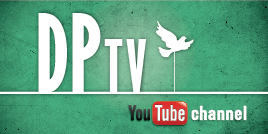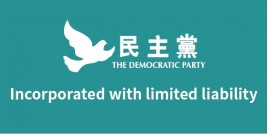The development of public-service broadcasting has been the subject of many community discussions in Hong Kong over the years - especially on the topic of opening airwaves and media channels to community participation. Unfortunately, the government has not yet laid down a clear policy on public-service broadcasting. In an open and democratic society, various means of communication - such as the airwaves and digital broadcasting channels - should be owned by all people. They are assets of the public, and must not be monopolised by lucrative enterprises.
For too many years, the public seems to have accepted the situation that none of the existing airwaves and media channels are open for public use. The government has done little to encourage public participation. In Europe and America, publicly used media channels have a history going back 40 years. In the late 1960s, the governments of the US and Canada were already starting to provide training and equipment for the people to create their own television programmes. To date, at least 21 countries in the world have established television channels that are open for public use. It is time the Hong Kong government helped the public to exercise its rights of expression by opening airwaves and media channels. Hongkongers deserve a more open broadcasting platform, not only because freedom of speech needs to be entrenched here, but also because our society needs to move on.
As the Democratic Party has repeatedly stressed, the essence of opening up airwaves and media channels for public use is not only to provide services. It improves our society by stimulating the public's interest and incentive to express opinions - as well as promoting the circulation of information among communities. After all, the progress of a society requires a lot of social participation by its people. We first introduced the idea of opening media channels for public use in 1993. But, since then, debates in our legislature on this topic have been fruitless. After years of research, the Democratic Party released a formal proposal on public-access television channels, in which we support opening up public-service broadcasting through digital broadcasting. Digital broadcasting would allow us to use the existing radio bandwidth more efficiently, for other broadcasts.
Digital broadcasting is stable, and would ensure wide coverage, as digital television is expected to become widely used after the government implements its digital broadcasting policy. Opponents say that broadcasts run by the public would have the potential to promote criminal activities, or create content that outrages public decency. But a well-devised regulatory system should be able to prevent any misuses of the system. As in other jurisdictions, broadcasts produced by the public here could be regulated - either by issuing licences to qualified, non-profit-making groups, or by setting up a regulating authority. The Democratic Party supports both methods of regulation, as long as some cardinal principles are not violated. Namely, the broadcasting body must be accountable to the public, independent from governmental or commercial intervention, and fully open to public participation.
We suggest that the content of broadcasts be governed by the existing Broadcasting Authority and the relevant legislation. As in other countries, such open broadcasts could be financed by levying licence fees, supported by the public treasury, donations or sponsorships. If the government had good ears, it would know that the community wants the opening up of airwaves and media channels. The existing broadcasting framework cannot satisfy the public's desire for honest, forthright commentary on the airwaves. I urge the government to develop good ears before it falls light years behind public opinion.
同刊於2006年11月23日南華早報
作者: 李永達




